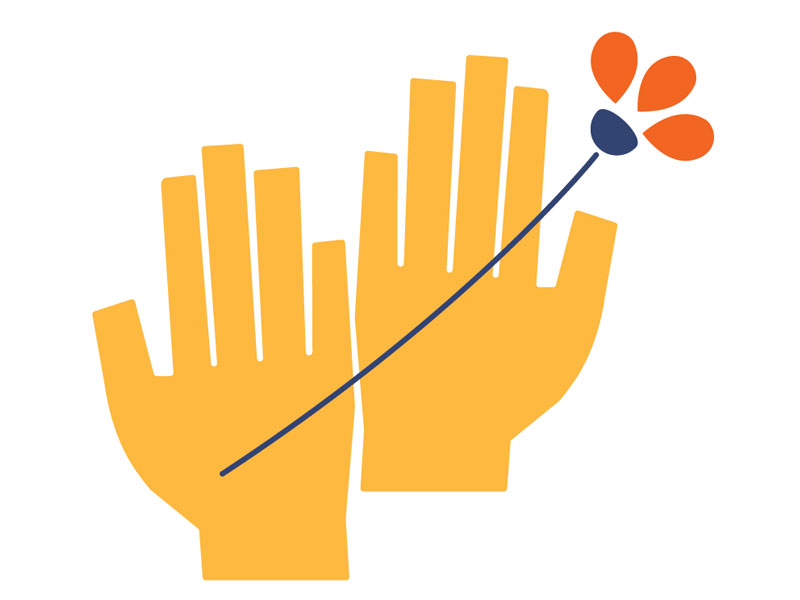The outbreak of COVID-19 is an out-of-the-ordinary situation and it calls for sudden changes in the way we have been living our lives – practising social distancing, being in isolation, following stringent hygiene practices etc. At the same time, we’re living in an atmosphere of fear and uncertainty. We fear for our own safety and for our loved ones. In these times, it is normal to experience a range of emotional reactions to this situation, especially anxiety.
Anxiety is often connected to dealing with ambiguity and a sense of not being in control of things. A situation such as this, therefore, is naturally making most of us feel anxious. Some of the common ways in which we may be experiencing anxiety about COVID-19 are:
- Catastrophizing (imagining only worst-case scenarios)
- Obsessively checking the news / media for updates
- Overly monitoring your health to check for possible ‘symptoms’
- Other manifestations of anxiety such as: Feeling restless, difficulty concentrating, changes in sleep/appetite, increased heart rate etc.
Though this is a serious public health concern and one must be taking adequate precautions, anxiety can sometimes prevent us from taking proactive steps toward solutions and can make us focus excessively only on the problem. Thus, managing anxiety becomes a crucial step toward caring for our well-being in times of this global crisis.
- Be aware of your emotions – Notice what you’re feeling and allow yourself to experience the feelings – even if they’re unpleasant. You may notice emotions such as sadness, fear, anger, frustration, etc. Do not stop yourself from feeling these emotions, and tell yourself that it is okay for you to feel so.
- Connect with your loved ones – Share your feelings and stay connected with your loved ones – friends or family. Catch up over conversations and indoor games!
- Find ways to stay connected socially – Video-chat with friends, schedule a workout together, listen to fun podcasts, attend online talks and discussions or sign up for an online course.
- Talk about something else – Talks of COVID-19 have possibly entered your dinner-table conversations with family, casual chats with friends and phone calls. Make it a point to take a break and talk about things as well.
- Ensure you’re getting accurate information – It becomes all the more important to look for information from credible sources in such times of uncertainty. Misinformation can often be a source of anxiety and panic.
- Stay in touch with positive developments – Sometimes news and media can end up highlighting only what is going wrong, but miss out on reporting things that are going well. Seek for positive news and updates which will help give a more realistic picture of the situation.
- Limit exposure to news and social media – While staying updated of the facts, ensure that you’re not overloading yourself with information. Schedule specific time gaps to check-in with the news, rather than continuously checking your phone/TV for updates.
- Focus on positive things and things that you can control – Anxiety often makes us think of several ‘what-ifs’ and worst-case-scenarios. Try to be aware of when your mind starts to catastrophize. Remind yourself to keep doing what is in your control, look for small positive steps that you can take in the present moment to keep yourself safe and calm.
- Take care of your body – Eating healthy, exercising, sleeping well and catching up on rest will not only keep you fit and healthy, but also give you a sense of control.
- Practise breathing exercises, simple mindfulness practices or yoga to help stay calm and fit.
- Seek help / reach out if you’re feeling too overwhelmed. You can call iCALL for professional counselling and emotional support. Our details are as follow:
Call: 9152987821
Email: icall@tiss.edu
chat: download nULTA app
Timing: Mon-Sat 10:00 am to 8:00 pm
References:











